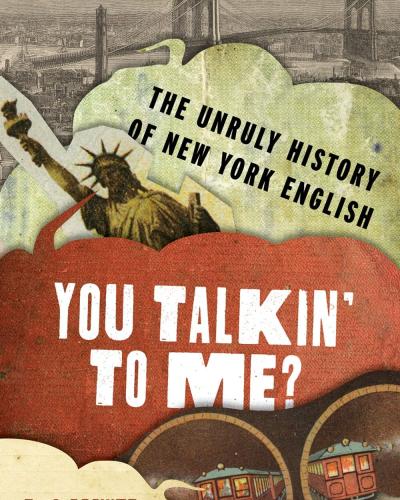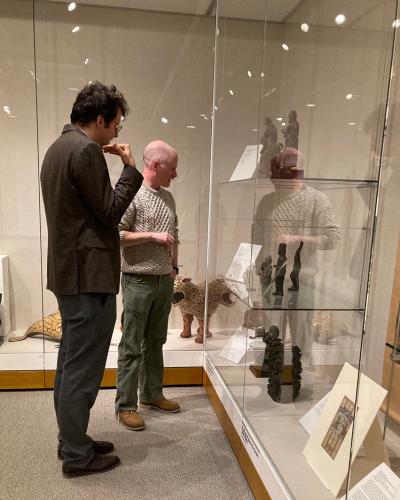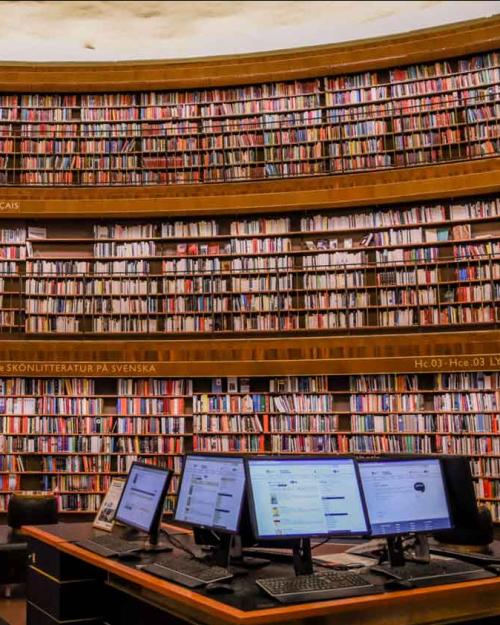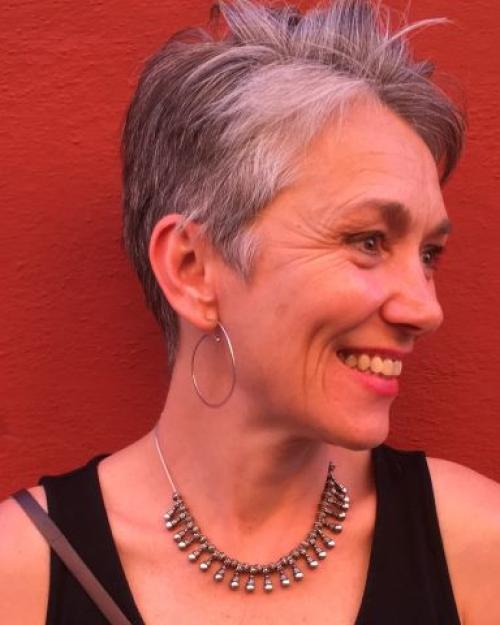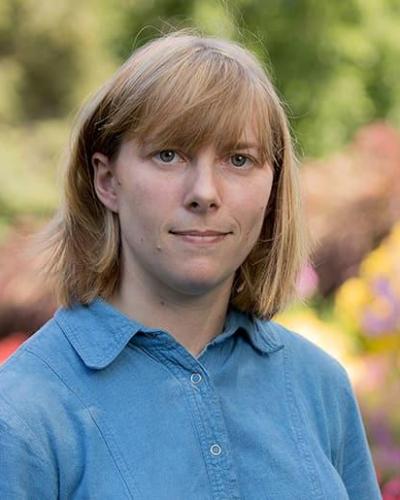In this new series, we highlight former Fellows’ monographs that grew out of their residency projects at the . Our fifth iteration of the Fellows' Q&A series features associate professor of English at Stony Brook University and 2017-18 "Corruption" Society Fellow, J. Elyse Graham (E.J. White). Her book, You Talkin' To Me?: The Unruly History of New York English, was released earlier this month (July 21, 2020) from Oxford University Press.
Big Picture
The book’s driving question is how the institutions, considered collectively, that make New York City what it is—the enormous class divides, the tourism, the retail and fashion districts, the newcomers from all over the world, the avant-garde subcultures, the publishing industry, the music industry from Tin Pan Alley to Broadway to hip-hop—have shaped the varieties of English that New Yorkers speak. The varieties that New Yorkers have spoken historically.
Studies of a language community often direct their focus to the level of a nation or the level of, say, a small fishing community. How multiple varieties of the same language jostle against and inform each other in a city is a question less often asked. And New York is such a great city to study—not just in the sense that it has great characters and stories, but also in the sense that it has wonderful archives and resources for researchers. I spent many happy hours looking through papers concerning the Bureau of Speech Improvement, an obsolete wing of New York City’s Board of Education, in the municipal archives.
Let’s stay with the Bureau of Speech Improvement for a moment. In the early part of the 20th century, the children of New York City, like the children of many cities across the United States, learned a special “school English” in which the Southern English accent was lightly brushed over the top of the local upper-class accent. One language historian has called these school variants “dainties.”
In the schools of New York City, teachers conducted English classes to emphasize oral recitation with this way of speaking, and they put up posters that had slogans in the vein of “A strong language for a strong America.” There was a real belief that, if you drilled students in proper language, language without the “corrupting” elements of the speech they used in their own communities, then you could make them into proper Americans. We are still dealing with the legacy of this kind of thinking in our education system today.
Discovery
I was surprised to find that a number of everyday words that I looked into in the course of my research and found to have originated in New York City—for instance, vogue as the word for a style of dance—either weren’t listed in the Oxford English Dictionary or were listed with a later date of coinage than they really had, in a different city from the one where they were coined.
For a while, I sent emails with this information to the OED, but they never replied or changed the listings. (I don’t blame them; they must get an enormous amount of mail!) Eventually I started to worry that the next time I tried to visit England, some official would bring out a folder filled with email printouts and say, “The Queen says you’ve been harassing the Oxford English Dictionary,” so I stopped writing to them.
Fellowship
The way that each of us uses language—accent, vocabulary, ways of engaging in conversation—is so intimate and personal that we tend not to want language to change.
The idea that certain kinds of people—immigrants, people of certain ethnicities, people from the working classes—can corrupt the English language, which therefore needs to be defended from them, was a powerful force that affected so many aspects of life throughout the history of New York City, from the way school was taught to the way newspapers were written to the way counter girls spoke in department stores to the way actors spoke on the stage and screen to the city’s deadliest riot, the Astor Place Riot of 1849.
The way that each of us uses language—accent, vocabulary, ways of engaging in conversation—is so intimate and personal that we tend not to want language to change. We have a lot of trouble accepting the fact that language changes, that—as the linguist Mark Aronoff says—any language that isn’t changing is dying.
New Yorkers have learned to celebrate the city’s identity as a “gateway city,” as a place where people from all over the United States and all over the world come together and share ideas and cultures and ways of living—and languages. It has taken them longer to come to terms with the effect this has on the speech of different communities in the city. This book aims to celebrate the Englishes, plural, that have arisen in our wonderful metropolis. But it also takes a serious look at the ways in which the city’s government (the Board of Education, for example) and its inhabitants tried to control or repress or de-corrupt the speech of New Yorkers in a deeply misguided attempt to repress elements they didn’t like in the city’s population.
The time and space the fellowship provided, as well as the interactions with the other fellows, made for an incredibly productive year—I moved to the publication stage of several different projects that year. Also I got to make friends with a miniature horse that lives on Cornell’s campus, which was a very rewarding experience.

